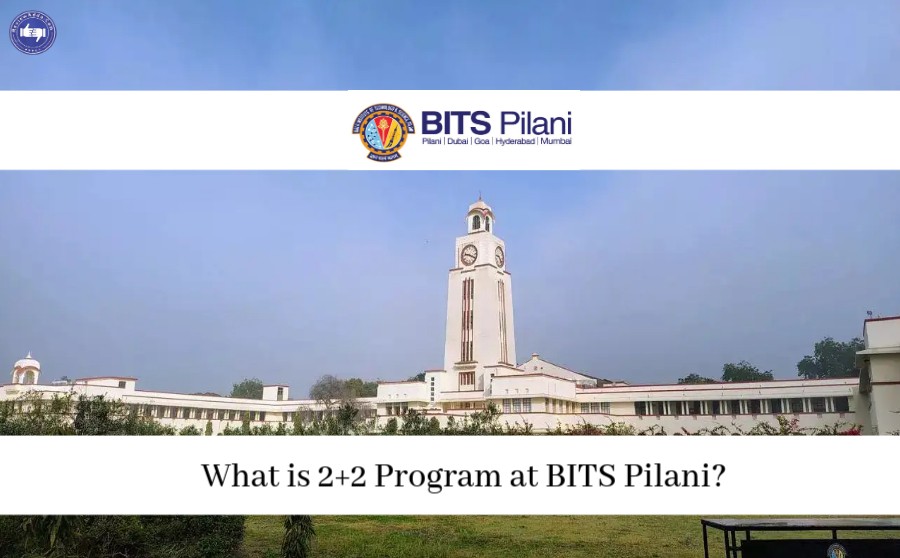ECE vs CS vs EEE vs ENC vs AIML vs DS vs RAI
Overview of B.Tech Streams: ECE, CS, EEE, ENC, AIML, DS, RAI
Engineering specialization plays an essential role in a student getting the best start in their career. For the same reason, in the B. Tech stream, several streams are highlighted because of their usability in the present world technology system.
This article compares seven prominent streams: ECE, CSE, EEE, ENC, AIML, DS, and RAI, in which the students can graduate or specialize in Electronics and Communication Engineering, Computer Science Engineering, Electrical, and Electronics Engineering, electronics and networking communication, artificial intelligence and machine learning, data science, as well as robotics and artificial intelligence. Consequently, each field is composed of different features that provide opportunities, challenges, and career prospects.
1. Electronics and Communication Engineering (ECE)
Overview
Electronics and Communication Engineering, or ECE as it is abbreviated, is a high-growth area that includes Electronics and Communication systems. This branch aims to design, implement, and manage electronic devices, circuits, and communication inventions. This means that ECE is very critical in numerous applications in modern society, such as in telecommunication, broadcasting, and consumer electronics, among others.
The field has undergone many changes as technology progresses, and the need for effective communication systems has emerged. Communication Engineering Course Content encompasses a number of areas like Microelectronics, Integrated circuits, Wireless Communication, Signal Processing, and many other related fields. Some of the areas of study often covered are the theoretical aspects of electronics engineering as well as the applied aspects, such as practical project work that will allow the students to work on current electronic systems.
Being in the era of digital communication and the Internet of Things (IoT), ECE people are laying down the foundation stone in the field of electronics to make life easier and more comfortable. The future of ECE is bright, with growing prospects in new areas like AI, 5G, smart devices, and many other places that are not yet even foreseen, thus making it a perfect field for engineers.
Core Subjects:
-
Circuit Theory
- Signal Processing
- Communication Systems
- Microprocessors and Microcontrollers
- VLSI Design
Fees Structure:
-
Government Colleges: The fees for these courses vary from INR 10,000 to INR 2,50,000 per year. For instance, even the IITs, which are regarded as some of the best institutions in India, cost around INR 2,50,000.
- Private Colleges: The fees can go up to as high as INR 80,000 and can go up to INR 2,00,000 per year, depending on the institution. Some leading self-financed institutions, like the Pilani Indian Institute of Information Technology, charge around INR 1,55,000 per annum.
Career Opportunities:
Students can find employment in the fields of telecommunications, electronics, microprocessors, and computer systems, as well as aerospace-related companies. Roles include design engineer, network engineer, and systems analyst.
Salary Package:
Growth Prospects
That is why, knowing the tendencies occurring in the IoT and smart devices world, ECE professionals are rather popular now. Moreover, the global electronics market is expected to expand, hence presenting numerous vacancies.
Emerging Trends:
-
5G and 6G communication
- Internet of Things (IoT) and wearables
- AI integration for network optimization
- Satellite communication for global connectivity
- Visible Light Communication (Li-Fi)
2. Computer Science Engineering (CSE)
Overview
Computer Science Engineering [CSE] is a rapidly growing field of engineering that deals with computation system design, application software development, etc. This field covers a wide range of areas, with issues and subjects that range from algorithms and programming languages to software engineering and database management.
CSE plays a vital role in technological systems and is associated with different fields, from finance to education and entertainment. The curriculum also comprises the introduction of theoretical concepts and the student’s acquisition of concrete skills that equip them with realistic practices in software development, data analysis, cybersecurity, artificial intelligence, and other related fields.
Since the advancement of technology, the CSE professional has been more involved with designing various new techniques that help make the system effective and efficient and provide a better experience to the users. According to the trends of employment demand, computer science engineering offers a promising future for future engineers, with the demand for skills in areas such as machine learning, cloud computing, and mobile application development to rise in the future.
Core Subjects:
-
Data Structures and Algorithms
- Operating Systems
- Database Management Systems
- Software Engineering
- Web Technologies
Fees Structure:
-
Government Colleges: It has a payout scale that runs from INR 10,000, stretching up to INR 2,50,000 per year. For instance, the IITs have fees of approximately INR 2,40,000 to INR 2,50,000 for a year.
- Private Colleges: The fees range between eighty thousand to two lakhs per year, depending on the institution, and VIT charges about one lakh and twenty-five thousand rupees per annum.
Career Opportunities:
CSE graduates have the opportunity to work as software developers, systems architects, data analysts, cybersecurity analysts, etc. The technology sector is extensive, with the possibility of working in new and growing organizations and highly developed corporations and organizations.
Salary Package:
Growth Prospects
Computer software solutions are always in demand, and this gives CSE graduates a guarantee of being employed. Brand-new industry areas contain cloud computing and cyber security, where everybody may receive a good salary.
Emerging Trends:
-
AI and Machine Learning applications
- Edge Computing and Quantum Computing
- Cybersecurity and AutoML
3. Electrical and Electronics Engineering (EEE)
Overview
Electrical and Electronics Engineering (EEE) outlines the aspects of the electrical and electronics engineering discipline that have to do with electrical and electronics systems and devices. This branch deals with electrical power and its generation, transmission, and distribution, and the circuit designing and fabrication of electronic circuits and systems.
EEE-themed areas are diverse and embrace power systems, control systems, renewable energy technologies, and many more. This course helps students to study and plan electrical circuits, study electromagnetic physics, and apply it practically. A significant number of curriculum implements laboratory performances, which allow the students to develop practical skills in the usage of electrical devices and facilities.
Due to the fact that the world today is focusing on the usage of sustainable energy solutions, there is a high demand for EEE professionals. They are instrumental in the realization of smart grids, renewable energy sources, and energy-efficient technologies; consequently, the study of EEE is fundamental for handling present-day energy questions and the direction of innovation in the electrical industry.
Core Subjects:
-
Electrical Machines
- Power Systems
- Control Systems
- Electronics
- Renewable Energy Sources
Fees Structure:
-
Government Colleges: Similar structures are seen based on fee structures ranging from INR 10,000 to INR 2,50,000 for per-year programs like ECE and CSE. IITs admit students for around INR 200000 to INR 250000.
- Private Colleges: Fees are affordable and, for instance, vary between eighty thousand INR and two hundred thousand INR yearly. For example, MIT, Mangalore, and Manipal Institute of Technology have fees of around INR 1,50,000 per year.
Career Opportunities:
Power generation companies, manufacturing industries, and research organizations are some of the areas where graduates can work. Some examples of such positions are electrical engineer, project engineer, and maintenance engineer.
Salary Package:
Growth Prospects
Given the current international trend toward the adoption of renewable energy and innovative grid systems, EEE professionals are in high demand. The energy sector is dynamic and offers many opportunities for innovation.
Emerging Trends:
-
Renewable energy technologies
- Smart Grids and Electric Vehicles
- Biomedical electronics
- Advanced power electronics
4. Electronics and Networking Communication (ENC)
Overview
Electronics and Networking Communication (ENC) is one of the nervous systems, and it concentrates on the principles and technologies of electronic communication systems and networks. This branch incorporates electronic, computer, and telecommunications engineering and gives the students the knowledge and tools needed to design and administer communication networks and systems.
Some of the matters that are taught in the curriculum include digital communication, network protocols, and wireless technologies. The students get to understand the concept, planning est, abolishment, and actualization of communication systems such as space communication, fiber optic communication, and mobile communication networks. An essential feature of the program is the set of practical activities connected with the usage of networking and communication technologies.
Listing the job outlook of the degree, it should be mentioned that as communication is becoming critical in the contemporary world where digital tools are more important than ever, there is a great demand for the competencies of successful ENC specialists. They are employed in different industries like telecoms, information technology, and broadcasting, which make positive strides in the designing of complex means of communication that bring about stronger connectedness and sharing of information across the globe.
Core Subjects:
-
Digital Communication
- Network Protocols
-
Wireless Communication
- Network Security
- Embedded Systems
Fees Structure:
-
Government Colleges: These may vary from INR 10,000 to INR 2,50,000 per year, similar to other engineering fields.
- Private Colleges: The fee structure for the ENC programs in the private institution varies between INR 80000 and INR 200000 per year, depending on the reputation and the location of the institution.
Career Opportunities:
Its jobs for graduates include work in the capacity of a network engineer, telecommunications specialist, and systems integrator. It is indispensable for the sustaining and further development of communications networks and systems.
Salary Package:
Growth Prospects
With rising connectedness in the world, the demand for networking and communication experts will persist as technology advances such as 5G unfold.
Emerging Trends:
-
Network virtualization and cyber-physical systems
- Enhanced wireless communication
- IoT and smart devices
- Security Protocols
5. Artificial Intelligence and Machine Learning (AIML)
Overview:
AIML, as an academic discipline, is a relatively recent and growing field that deals with the creation of systems capable of learning. This branch uses computer science methods, statistical methods, and also the principles from cognitive sciences to design the algorithms and models that will help the machines to contain the data and not allow the individual wrong steps to be repeated in the future.
The topics that form part of the AIML course generally consist of machine learning algorithms, neural networks, natural language processing, and data mining, amongst others. The programming languages and tools that the students use while working on the assignments related to AI help them prepare for the jobs positioning in the data science field of AI research or as software developers.
As the value of data sciences has grown across all business verticals, finding professionals in AIML has become necessary. They are involved in applying AIML to construct objects such as different self-driving cars, intelligent assistants, predictive analytics, and numerous healthcare solutions, mainly tailoring them to the subject of the engineering profession.
Core Subjects:
-
Machine Learning
-
Deep Learning
- Natural Language Processing
- Computer Vision
-
Robotics
Fees Structure:
-
Government Colleges: Tuition fees for AIML courses in government colleges are low but vary in other colleges and range between INR 10000 to INR 250000 per annum.
- Private Colleges: Fees for AIML programs may also vary in private institutions from Rs. 1,00,000 per year to Rs. 2,00,000 per year. For instance, some of the prominent private colleges have been charging fees, which we estimate to be about INR 1,50,000 on average each year.
Career Opportunities:
The graduates of AIML can also land careers as AI engineers, data scientists, or AI professionals in the sphere of machine learning. As it stands today, there are several industries, such as the health sector, financial sector, and the automobile sector, to mention but a few, that are embracing artificial intelligence technologies.
Salary Package:
Growth Prospects:
The market sales and adoption of artificial intelligence are also anticipated to rise within the next years with a presence in different industries. People who know AIML are rare, hence creating a high demand, and it can be considered as a good-paying profession.
Emerging Trends:
-
Generative AI and profound learning advancements
- AI ethics and cybersecurity applications
- AI-powered automation
6. Data Science (DS)
Overview:
Data Science is a broad term that includes analysis of data, operations research experience, and expertise in computation, as well as domain knowledge related to the field of application for the extraction of meaningful information from the given data. This branch is primarily concerned with the process of collecting extensive data and the use of them for decision-making and as a tool for running the company.
Examples of the areas of study include probability and statistics, data mining, machine learning, and data visualization. In this course, students are taught how to use languages and tools to program, how to carry out analyses, and how to present findings from analyses and models.
With the growing emphasis on data as the primary focus for developing business strategies, the need for Data Scientists is also making the rise. DS professionals are employed in different industries, such as financial, healthcare, marketing, and technology industries, to support, adapt, and develop solutions that improve the efficiency and competitiveness of the business.
Core Subjects:
-
Statistical Analysis
- Data Mining
- Machine Learning
- Big Data Technologies
- Data Visualization
Fees Structure:
-
Government Colleges: As is observed with another stream of Colleges, the fees vary from INR 10,000 to INR 2,50,000 per annum.
- Private Colleges: The fees for DS programs in private institutions vary from INR 1,00,000 to INR 2,00,000 per year, depending on the college’s reputation and the necessity of infrastructural gradation.
Career Opportunities:
Particular positions that students in DS can get include data analysts, data engineers, or business intelligence specialists. Very rarely does a day go by when an industry will not need to make decisions based on data, which fuels the need for data scientists.
Salary Package:
Growth Prospects:
Data science as an industry is fast-growing today, and organizations are turning to data for decision-making most of the time. All the skills that fall under this domain are portable and can be applied in different fields.
Emerging Trends:
-
Big data analytics and real-time processing
- Data privacy and ethics
- Data visualization and ML integration
7. Robotics and Artificial Intelligence (RAI)
Overview:
This abbreviation stands for Robotics and Artificial Intelligence, which is a relatively new branch that deals with Robotics robots in partnership with I, which is aimed at creating robots that are self-employable. This branch majorly deals with designing, developing, and deploying robotic systems with incorporated artificial intelligence.
There are various programs related to RAI, such as designing the robot, robot control, artificial intelligence, and sensor systems. This allows the students to code and build robotic systems; thus, they can be ready for jobs related to automation, manufacturing, or artificial intelligence research.
Since the use of technology has progressed and there is constantly growing incorporation of automation in different industries, RAI professionals are all the more needed. To manage it, they contribute towards the development of intelligent robots for manufacturing, healthcare, exploration, and entertainment, among others, hence making RAI an essential and exciting area of study for civil engineers.
Core Subjects:
-
Robotics Fundamentals
- Control Systems
- Machine Learning
- Sensor Technologies
- Embedded Systems
Fees Structure:
-
Government Colleges: Tuition charges for RAI courses in government-affiliated colleges may start from INR 10,000 to INR 2,50,000 per annum.
- Private Colleges: The costs of RAI programs in private institutions vary between One Lakh and Two lakh Indian Rupees per annum, with some colleges having higher tariffs pegged on their infrastructural endowment and faculty proficiency.
Career Opportunities:
Graduates can find jobs in the manufacturing, healthcare, and automation sectors, such as robotics engineers, artificial intelligence researchers, and automation experts.
Salary Package:
Growth Prospects:
The Robotics industry is expanding rapidly, mainly due to advancements in artificial intelligence and automation. There is an expectation that the need for the employment of certain specialists in the given sphere will increase in the future.
Emerging Trends:
-
Autonomous systems and human-robot interaction
- Swarm robotics and healthcare applications
- AI-enhanced robotics
Comparative Analysis
Conclusion
These B. Tech programs themselves have different prospects for the learners: B. Tech – Civil Engineering B. Tech – Mechanical Engineering B. Tech – Electrical & Electronics Engineering B. Tech – Electronics & Communication Engineering B. Tech – Computer Science & Engineering B. Tech – Information Technology.
Therefore, the student or a candidate should choose ECE, CSE, EEE, ENC, AIML, DS, or RAI according to individual interest, or the field of interest or future scope of the job market. It is for this reason that professionals in these fields will hold the future as technology advances.




